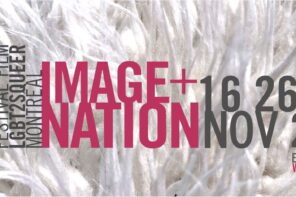Every now and again, a story comes along that perfectly captures your innermost thoughts. It’s a disconcerting feeling to see a character describe something that you’ve experienced but have always had trouble putting into words. It’s also a liberating feeling, as you realize that you are not alone in your struggles. Morgan Roger’s Honey Girl is one of those stories. While my experiences differ considerably from the protagonist, the lyrical way in which Rhodes describes loneliness and self-doubt kept me reading until the early hours of the morning, and it made me wish that there were more stories like this.
Honey Girl follows Grace Porter, a recently graduated astronomer who has always meticulously planned out her life and lives by her father’s strict expectations. This all changes during a Las Vegas escapade where she drunkenly marries a woman she just met. As she struggles to figure out the direction of her future, Grace flees to New York City for the summer and falls head-first into the vibrant world of her wife, Yuki Yamato. Yuki spends her nights hosting a podcast about loneliness, and her free time looking for monsters. Slowly, Yuki’s life starts to feel like Grace’s, as Yuki’s friends start to become family and Grace begins to believe things she had always considered outlandish. However,Grace can hide from her future for only so long, and with Yuki’s help, she learns to face her fears and come to terms with the uncertainty of life.
With the structure of academia finally gone, she begins to realize all of the aspects of her life that she’s been ignoring and starts to recognize the effect this repression has inflicted on her.
One review described Honey Girl as a book about “a woman coming home to herself,” which I think beautifully encapsulates the essence of the book. While the romance between Yuki and Grace is an important part of the story, at its heart, this novel is a coming-of-age story. As a Black queer woman, Grace has always had to work twice as hard in order to prove her worth. She never had the opportunity to stop and truly learn to love herself. With the structure of academia finally gone, she begins to realize all of the aspects of her life that she’s been ignoring and starts to recognize the effect this repression has inflicted on her. Honey Girl beautifully depicts the messiness that follows graduation and explores how to navigate this confusing period of life.
Reading this book made me realize just how rare these types of stories are. There are many books and movies that feature a protagonist’s journey of self-discovery, but the majority of them are about high school students. It’s incredibly rare to find media that feature people in their early twenties trying to figure out their place in the world. Many sitcoms explore the latter part of being in your twenties, but few series depict the transitionary period between school and finding a career. However, it’s during this age that a great bulk of self-discovery occurs, and I think more fiction should explore this tumultuous period in our lives. Our twenties are a time for exploration and learning as we begin to envision the direction that our future lives will take. It’s a time for mistakes and stupid decisions. There is such a wide variety of experiences, ones that the media need to explore more extensively.
There is no time limit for finding yourself, but the media has perpetuated a narrow narrative that makes it seem like coming of age experiences are exclusive to teenagers.
Coming-of-age narratives that feature people in their twenties would be especially important for marginalized people. Self-discovery is not something that everyone is able to do as a teenager. It may not be safe for them to be their true selves, and many people are too concerned with surviving to think about their place in the world. There is no time limit for finding yourself, but the media has perpetuated a narrow narrative that makes it seem like coming of age experiences are exclusive to teenagers. For many, high school was a suffocating environment that wasn’t conducive to change, and graduating was the first step towards discovering who they really were. Escaping that rigidity can allow them to finally find people who share the same values as they do, and who accept them for who they are. Every person has their unique narrative when it comes to becoming comfortable in their skin, and restricting this storytelling to adolescence does an injustice to the complexity of our lived experiences.
There are so many different variations of the same high school coming-of-age story, and fresh perspectives are desperately needed.
Relatability is not an essential factor in order to enjoy fiction, but there is something cathartic about seeing your experiences mirrored in a work of art. Seeing yourself in the media can serve as a beacon of light at a time when you need it the most. The first time I read a book about someone with anxiety was Fangirl by Rainbow Rowell. I had never felt so attached to a character before, and whenever I was feeling especially anxious, I would turn to my favourite passages of the book to remind myself that I wasn’t alone. Representation can serve as a reassurance that the path you are travelling on is one that many have walked before.
I’m too old to relate to stories about teenagers, but I am too young to truly understand the struggles of middle to late adulthood. Fiction authors should explore the middle ground in more depth. There are so many different variations of the same high school coming-of-age story, and fresh perspectives are desperately needed. Coming of age is not a finite experience, and self-discovery is an ever-evolving process: one that should be depicted across all ages in order to fully capture the wide range of our diverse lives.







